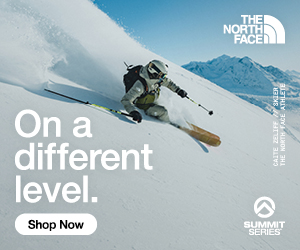The first time I did my knee back in 2008, when my MCL, meniscus and tibia plateau refused to come to the party with the rest of my body when skiing in Portillo, Chile, I was determined to come back better than ever.
I rehabbed like a pro, hitting the weights gym on the daily, even with a leg in a brace set at 30 degrees for my MCL for six weeks and crutches to support my healing bone. My ortho said I was more committed than his Olympic athletes (and yet still I haven’t won a medal, go figure).
Six months later I was back skiing, in a brace, but skiiing. Of course I was younger and fitter back then, focused and dedicated in the first years of my snow journalism career. Invincible and inhaling life.
Fast forward 18 years and I’m tired. Age, hormones, own-your-own-business work life, cost-of-living life, two years of Covid, parental grief and the like have all caught up. Yes, I can hear the world’s smallest violin playing just for me, it’s sweet and delicate and playing Bruch, Violin Concerto No.1 in G minor.
When I recently returned from a lengthy ski trip nursing a compromised knee, and then tore the hell out of said compromised knee by simply moving from a seated to standing position back home, I knew it wasn’t going to be pretty.
It wasn’t. Surgery, four weeks in a 24/7 locked brace, no sleep thanks to said brace, then months of rehab that just didn’t seem to be progressing. No one talks about the lethargy, the malaise, the frustration of clawing back from a knee injury as a skier or snowboarder. It’s all bike, bike, bike, take your supplements, do what your physiotherapist says and she’ll be right mate.
They don’t mention the toll of daily pain or the impact of sleep deprivation from waking in the night from the same pain night after night. Of having to rely on others when you spend your life living alone and working for yourself. Nor do they mention the exhaustion that comes with both, and the stress that then manifests in low tolerance of others.
Mental health is a key part of any physical recovery and when you can’t go for a run or a hike or get on a bike to let off steam, raise the heart rate and get some endorphins, then, well, you know the rest. Add low dopamine from ADHD and, well, someone cry me a river, right?
Turns out I’ve had a minor set back in my recovery and have to go back under the knife, albeit briefly, again. On one hand I’m thrilled that there is a solution, that my five steps forward seven back recovery has a cause that will be fixed. On the other I’m closing in on five months of daily, at times debilitating, knee pain and not realising how this has permeated my mood and interactions with people.
My once positive disposition is obsessed with the negative, I obsess on little things that truly don’t matter (we’re not curing cancer, though I wish we were) and I’m sick of winter. There, I’ve said it.
Not because I’m watching everyone else ski during a bumper snow season when I cannot, but because unless you’re skiing then winter doesn’t have much purpose outside of making everyone cold and miserable. Who knew?
We’re all quick to pull a physical team together for recovery – physiotherapist, personal trainer, surgeon but rarely, unless you’re an Olympian, do you get given the names and numbers for a psych or even a nutritionist to add to your rehab team.
Back in 2008 I had a session with Olympic performance psychologist, Paul Penna, but that was more about how to approach the sport of skiing after a major accident that could naturally produce a new fear going forward. For the record, it helped, and I still use his technique for addressing fear on the slopes, today – stop, breathe, focus on the next turn, visualise the turns ahead, stop every time you get distracted.
This current round of kneehab and I’m supposed to be wiser – supplements on the daily, gratitude journals, breathing exercises, nutritionist, organic food, counsellor on speed dial, infrared saunas and therabands and an extra three jobs to pay for the lot. All this while searching for my lost front door keys only to find them in the door keyhole (on the outside) and left there overnight.
It’s important to remember that recovery is not linear, it ebbs and flows and so long as the trajectory is going in the right direction, then you just have to sit with the highs and lows in the best way you can. Back yourself with a team of support if you have the funds, if not then hit YouTube for advice from qualified nutritionists, meditation experts, psychology and more.
Recovery is holistic, we know it’s not just body. Research proves again and again that the mind plays a huge factor in how fast you recover and at what strength.
There endeth my Tedtalk.


































